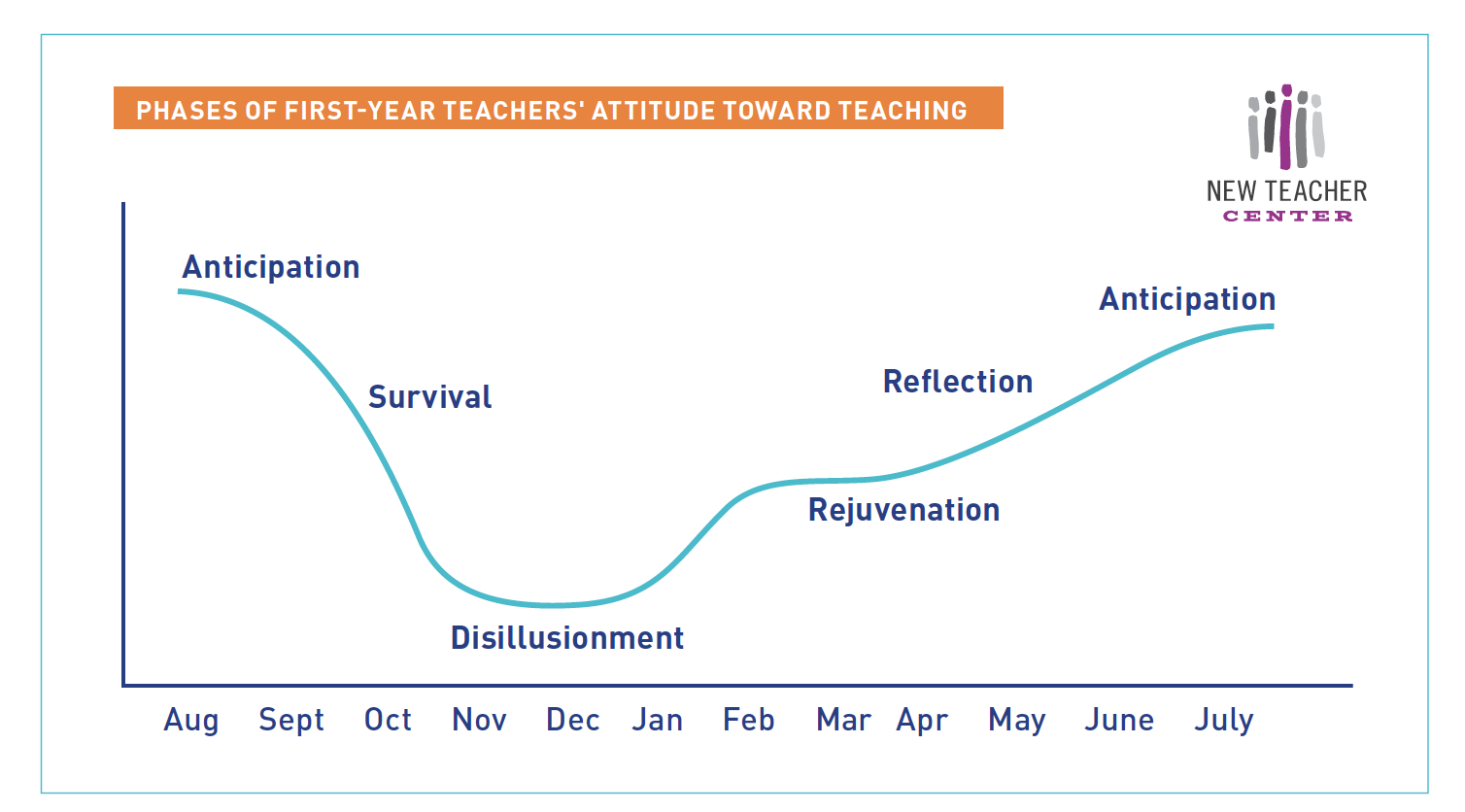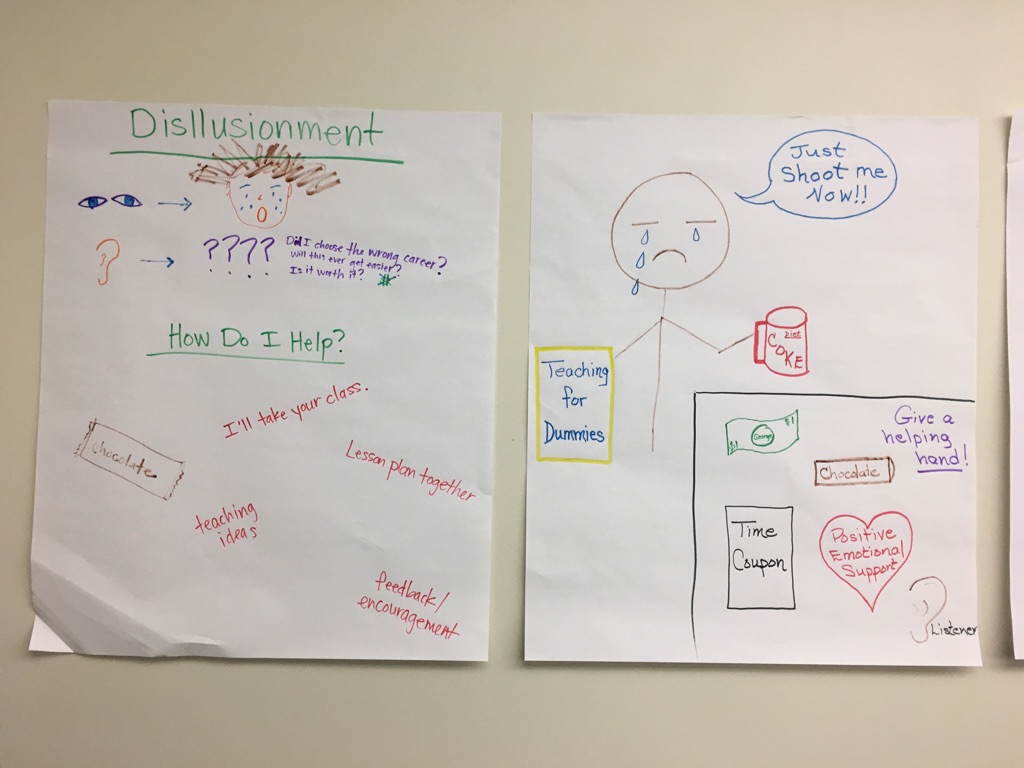
During their first year, new teachers experience some extreme phases of teaching. According to the New Teacher Center, teachers experience five phases.
This time of year, our new teachers may discover the disillusionment phase. They begin to realize the amount of time teaching takes, their management and planning may not be going the way they had envisioned, and they might question why they became a teacher in the first place. As a mentor or colleague, you may witness your provisional educator "express self-doubt, have lower self-esteem, and question their professional commitment" (New Teacher Center, 2017).

Our department recently worked with lead mentors in Jordan District to illustrate the phases and share strategies to help teachers through them. Mentors and colleagues can provide emotional support for their teachers by genuinely listening to them, encouraging them, giving positive feedback and helping them with perspective.
Instructionally, mentors can help plan lessons, observe their teaching and model lesson ideas for them, and help provide ideas to help with management challenges.
Mentors can also help new educators with logistical items, such as making copies, offering advice on parent teacher conferences or evaluations, assisting them with grading, and finding books or materials that will help them with areas the new teacher is concerned with.
If we can support our new educators through the disillusionment phase, we have a better chance of retaining them. As mentors look to support their new teachers and provide the emotional, instructional and logistical support they need through the phases, they can make a huge difference for new teachers.
Resources:
New Teacher Center. (2017). From surviving to thriving: the phases of first-year teaching.
Mentor Training New Teacher Phases document
